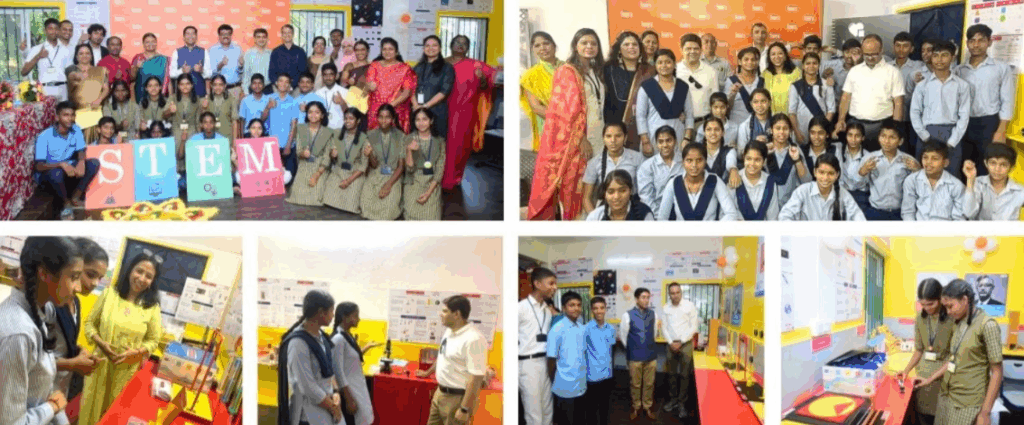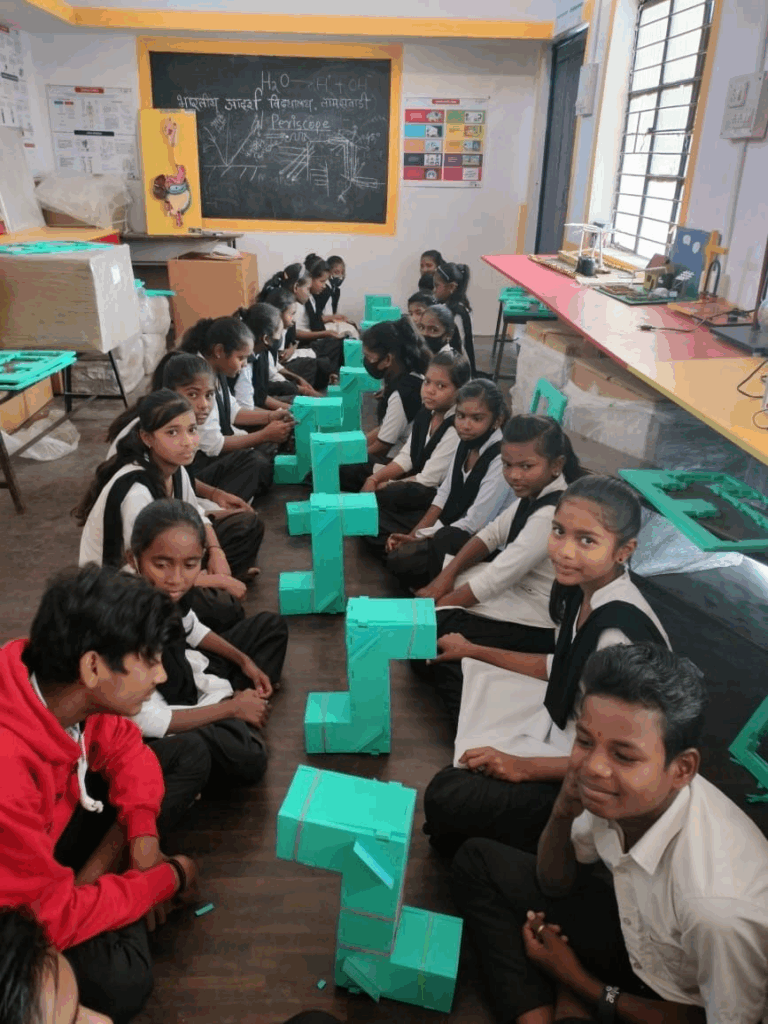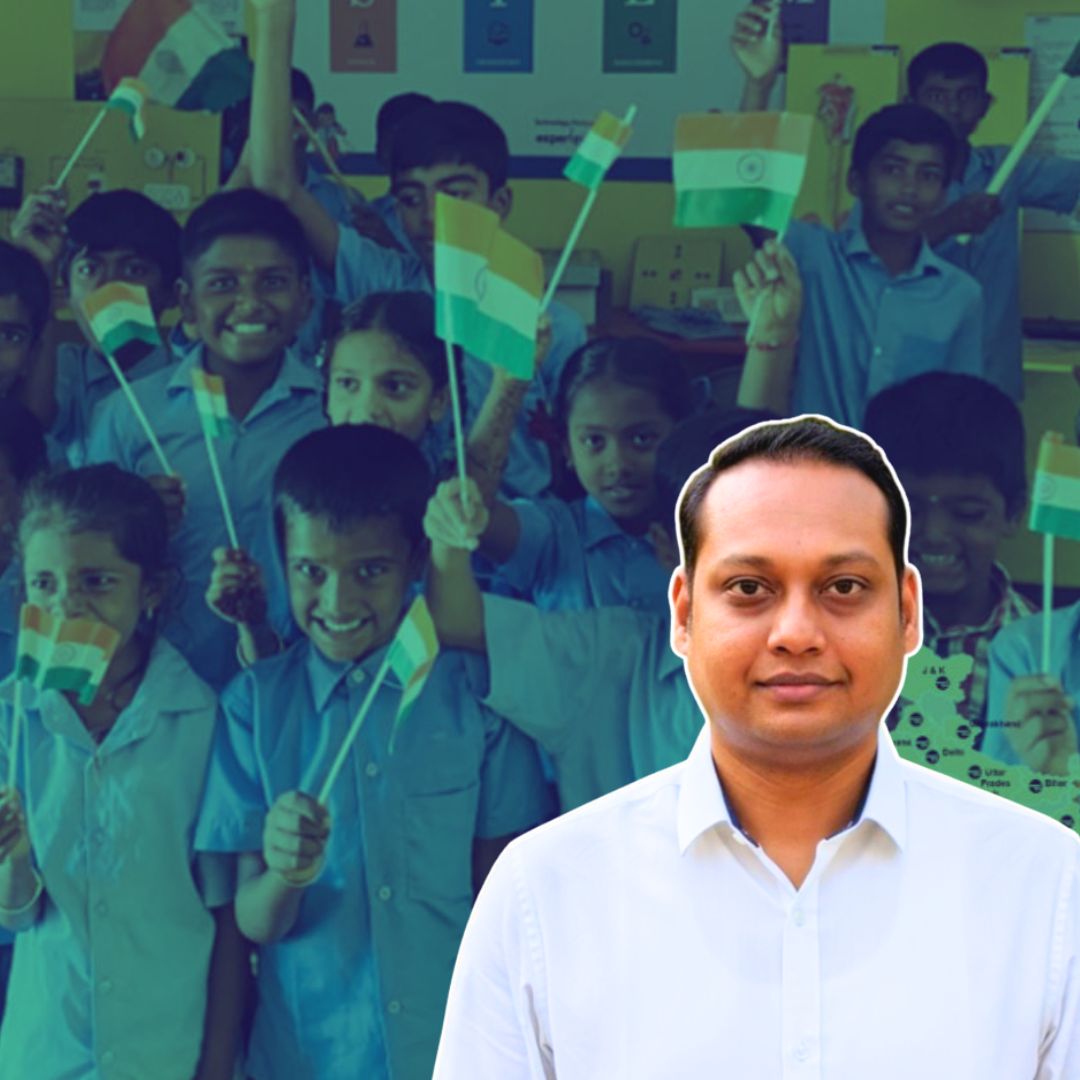Kuldeep Ulhe’s professional path is a blend of technical expertise and social commitment, evolving from a software engineer into a CSR and ESG specialist focused on education equity.
As Program Head at Experifun, Bengaluru, since 2016, he has led the design and deployment of over 700 STEM labs, touching the lives of more than 200,000 students across India.
His journey spans roles advancing governance, livelihoods, and education in rural and urban contexts, combining technology-driven solutions with impactful corporate social responsibility programmes.
Ulhe’s pragmatic vision stresses measurable social impact, donor engagement, and strategic partnerships, aligning corporate strategy with national sustainability goals.
“CSR must go beyond compliance to create real, lasting change,” he shares. This narrative invites readers to explore how purposeful leadership in social innovation can transform education and communities.

From Technology to Social Impact
Kuldeep Ulhe’s career began in Pune as a software engineer after his Bachelor’s in Information Technology. Yet, his growing passion for development led him to pursue a Master of Arts in Development at Azim Premji University.
Early research internships in governance, education, and livelihood sectors deepened his understanding of systemic challenges in Indian society. Reflecting on his path, Ulhe says, “I realised technology alone isn’t the answer; it’s how we integrate it with people’s lives that makes the difference.”
This awakening shaped his transition from pure tech roles to socially driven projects, where he could blend data, strategy, and empathy. His experience spans teaching rural schoolchildren to managing STEM lab implementations in diverse schools, marking his multi-faceted approach to social impact.

Building Education Ecosystems Through STEM Innovation
At Experifun, Kuldeep has played a central role in conceptualising and delivering STEM labs, remedial education, and scholarship programmes.
Covering grades 1 to 10 in eight languages, these initiatives directly address learning gaps and nurture curiosity in science and math. He emphasises, “Hands-on, experiential learning is key to nurturing future innovators.”
Beyond lab installations, his team develops lesson plans, manages vendor relationships, and implements tech solutions like monitoring dashboards and TV apps to improve engagement and outcomes.
Over 120 schools and 10,000 scholarship beneficiaries illustrate the scale and depth of his work, which combines rigorous impact assessment with flexible adaptation to local contexts.

Aligning CSR, ESG, and Public Policy for Holistic Impact
Kuldeep’s expertise extends beyond education delivery into creating frameworks that align corporate responsibilities with environmental and social governance goals.
His dual perspective as a corporate leader and policy researcher allows him to strategically position CSR initiatives within India’s larger sustainable development agenda.
“Corporate social responsibility must integrate with public policy,” he asserts, “only then can we achieve systemic progress.”
He works closely with NGOs, policymakers, and funders to design programs that are scalable, measurable, and transparent. His approach reflects modern CSR trends where accountability and impact measurement take centre stage.
Experience-Shaped Foundations of Kuldeep’s Leadership
His previous roles exposed him to hands-on community engagement, from designing governance frameworks for water supply in Bangalore to studying agricultural livelihoods in Maharashtra’s vulnerable districts.
These experiences fuel a grounded approach, balancing innovative solutions with real-world constraints. Kuldeep remarks, “Effective CSR needs listening first understanding community needs shapes successful interventions.”
Moreover, managing family business operations fosters his strategic decision-making and resource management skills, adding a pragmatic dimension to his leadership style.

The Logical Indian’s Perspective
Kuldeep Ulhe’s journey exemplifies the evolving role of CSR leaders who combine expertise, empathy, and evidence to create meaningful social change. His work underscores the importance of integrating education innovation with corporate accountability and public policy, a model The Logical Indian supports.
We believe social transformation is rooted in inclusive dialogue, compassion, and measurable action a philosophy embodied by Ulhe’s initiatives. As India moves rapidly towards its sustainability goals, how can more professionals and companies adopt such integrative, impact-focused approaches?
If you’d like us to feature your story, please write to us at csr@5w1h.media











